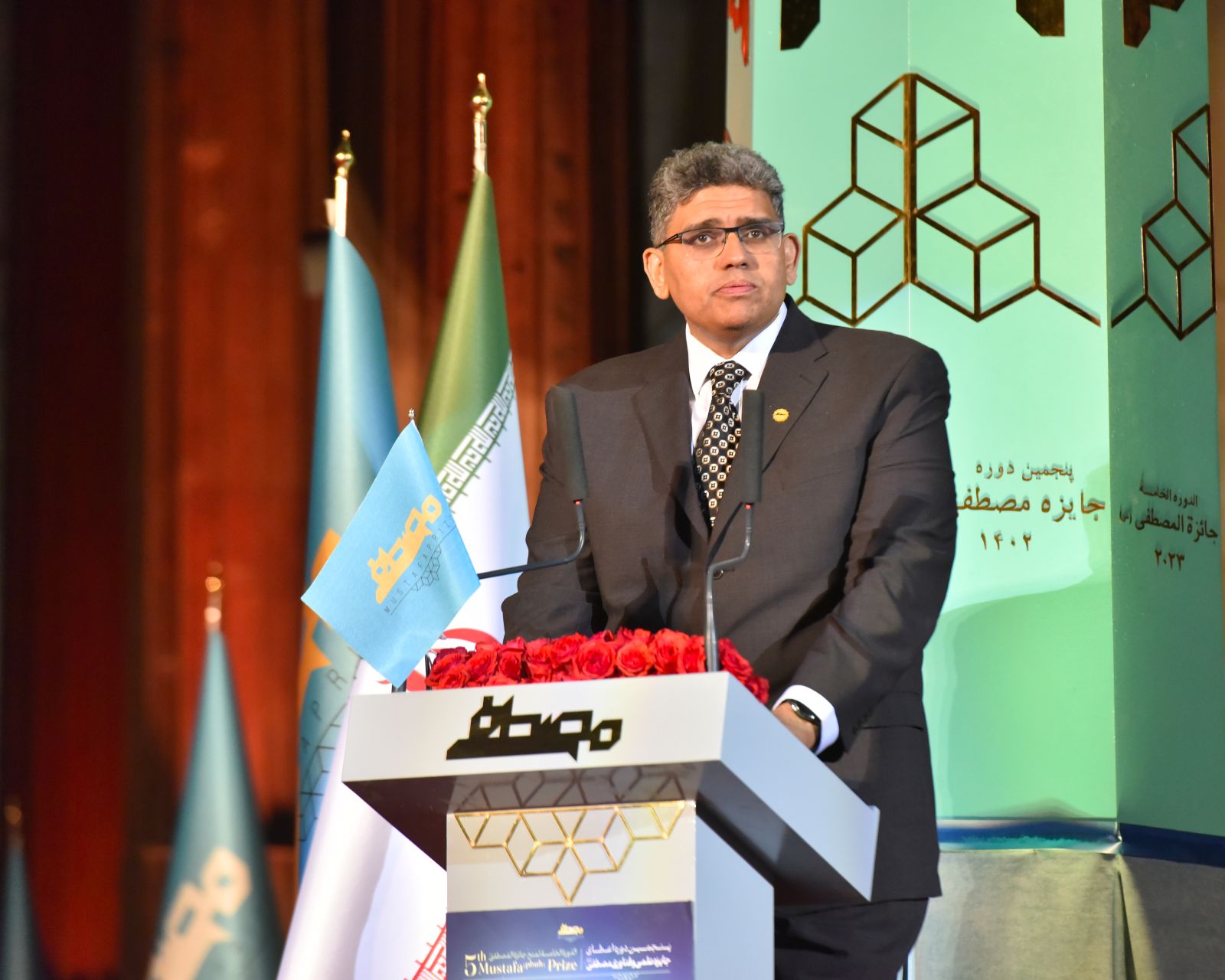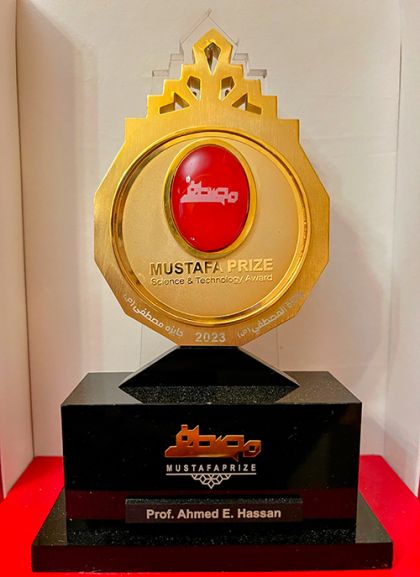
Ahmed Hassan earns prestigious Mustafa Prize
Faculty of Arts and Science professor, Ahmed Hassan (School of Computing), is a recipient of the 2023 Mustafa Prize in recognition of his achievements in AI-guided Software Engineering, having created the Mining Software Repositories (MSR) field over two decades ago.
Established in 2015, the Mustafa Prize is recognized one of the world’s most prestigious scientific awards. A prize that Science Magazine acknowledges as being equivalent in prestige to a Nobel Prize.

The biannual Prize, open to non-Muslim scientist in Islamic countries and Muslim scientists worldwide, is granted by the Mustafa Prize Foundation in recognition of achievements that have played a considerable role in human life or have expanded the boundaries of our understanding of the world.
“I am truly humbled and honoured,” Dr. Hassan says. “I recognize the responsibilities that such a recognition brings onto me and my field. Responsibilities that go well beyond my own my research program and include the larger software engineering research community. We must rethink the definition of software in the modern AI era and how software engineering and MSR research can ensure the trustworthiness of such software.”
For more than two decades, Hassan and his team have worked on improving the productivity of developers and the trustworthiness of Ultra Large Scale Software systems by leveraging the vast amounts of data that is generated as developers work on these systems or as users use such systems. Such data is a treasure trove of knowledge that when combined with AI technologies (like Foundation\Large Models) can drastically improve the productivity of developers and the quality of software.
For instance, the same way that Amazon would recommend other products for consumers based on their own purchase history and the purchase history of others, AI-guided software engineering technologies can recommend the propagation of code changes in turn preventing the introduction of bugs, or they can even write the repetitive parts of a program, like GitHub co-pilot, so developers can focus on the more challenging parts of their program.
Dr. Hassan, the NSERC/RIM Industrial Research Chair in Software Engineering for Ultra Large Scale systems and the Canada Research Chair in Software Analytics, credits his success to his family, his trainees, the global MSR research community and the support of his colleagues at Queen’s.
“Our enduring legacy as scientist is our trainees. Their dreams and resilience are what defines the future. For my trainees at Queen’s and beyond over the years, thanks for letting me be part of your journey and for inspiring me and the world,” said Dr. Hassan in his acceptance speech.
More than 20 years ago, Dr. Hassan founded the MSR community; and his team has been innovating in the area of AI-guided Software Engineering and advocating the importance of this area with great successes with many of these innovations already adopted by some of the world’s largest software companies including Google, Microsoft and Meta.
“Having MSR recognized at such a prestigious award is a strong recognition of the impact of MSR on humanity and its progress; especially with the constant dependence of everyone on software. Such strong recognition fuels me and the whole MSR community to challenge ourselves even further, bringing even more positive impact on computing and society as a whole.”
Dr. Hassan credits the university with helping him succeed. “Since my first day at the school and every day since then, I have always felt that I am part of a very caring family. One that is constantly working so very hard to support me and my students to excel – always removing obstacles and opening opportunities for me and my team,” he says. “The faculty office has on many occasions shown a great can-do attitude, such an attitude has been essential in creating an outstanding research atmosphere for my SAIL lab. It is not surprising that today Queen’s is the alma mater of many of the world’s leading young and mid-career software engineering researchers.”
Associate Dean (Research) Stefanie von Hlatky offered her congratulations on the honour.
“Dr. Hassan’s research leadership at Queen’s University has truly been exceptional and winning the Mustafa Prize is global recognition of this work. This is a remarkable achievement for Dr. Hassan, his team, and for the School of Computing as a whole. The School of Computing has cultivated a research-intensive environment where innovation and impact are operating principles; Dr. Hassan’s scholarship truly embodies this.”
Learn more about the award on the Mustafa Prize website.

